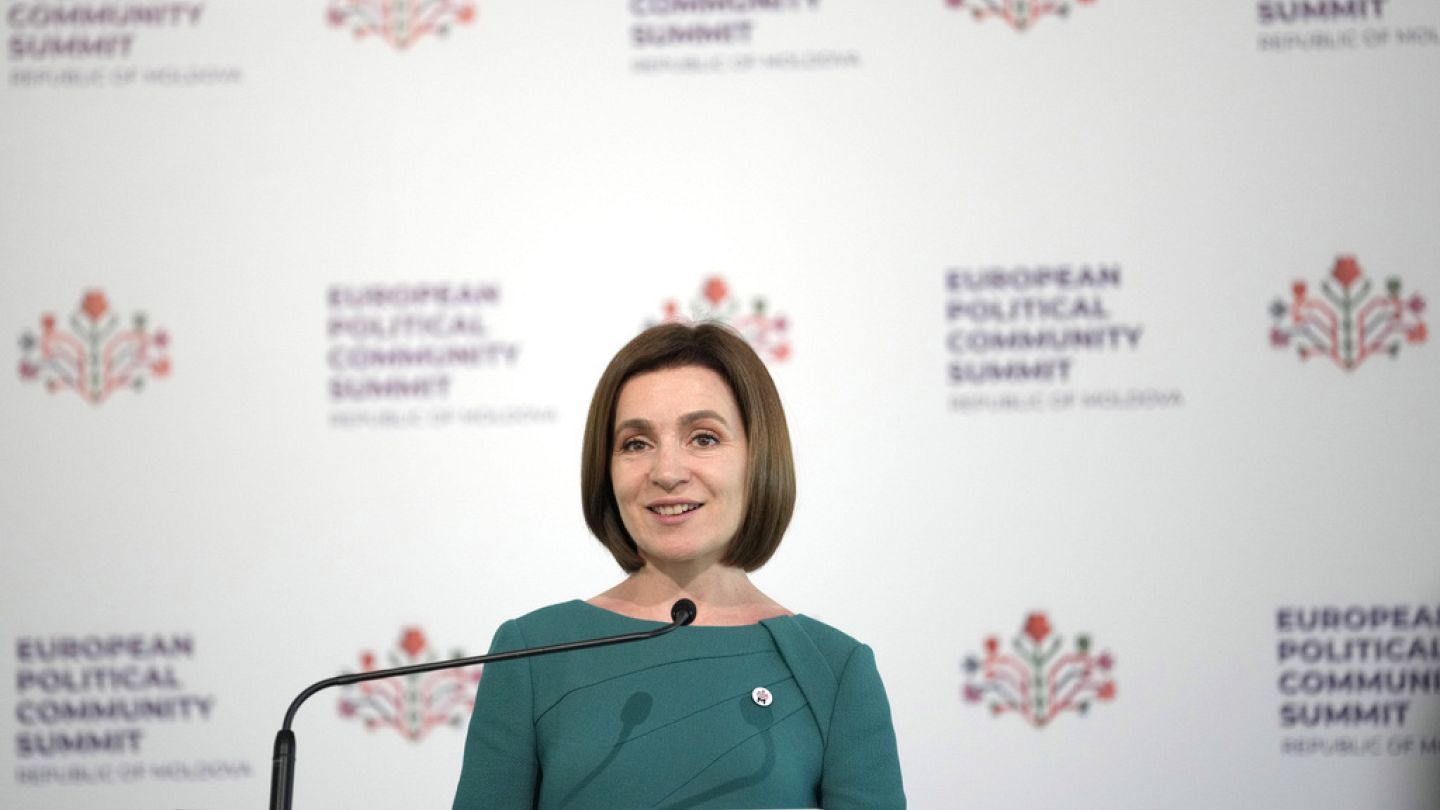How do Russia’s European neighbours experience the information war?

Moldovan President Maia Sandu at a press conference at the Mimi Castle in Bulboaca, Moldova.
Information warfare occupies an increasingly important place on the political agenda in Russia’s neighbouring countries since the beginning of Russia’s full-scale invasion of Ukraine.
Since the Russian invasion of Ukraine, propaganda and disinformation have been perceived as a major threat in several countries. Why does the media play such an important role and even become an instrument of domestic politics?
Information warfare occupies an increasingly important place on the political agenda of Russia’s neighbours. Politicians talk about propaganda and disinformation. Analysts point out that it is local political forces that are particularly active in promoting the pro-Kremlin point of view.
A fierce political infighting with references to information warfare, accusations of propaganda and a use of the press, which opponents describe as Russian disinformation, is unfolding in Georgia and Moldova. Both countries aspire to EU membership and are well on their way to achieving it. In both countries, the Russian side opposes the Western side and the government is accused of undermining the nation’s European aspirations.
In Georgia, this confrontation seems particularly acute due to the “polarisation of media and society”, explains Dustin Gilbreath, Deputy Director for Science at the Caucasus Research Resource Centre. He draws attention to the fact that, according to recent opinion polls, support for the country’s European aspirations is breaking records. But anti-Western agitation is threatened by the involvement of public figures:
“When the Georgian Dream Government repeats explicitly anti-Western lines, regularly insulting the US administration and insulting EU MPs, saying that the US is trying to drag Georgia into war, few people believe these narratives; but some have come to believe them. Meanwhile, the disinformation comes mainly from people inside the country, and mostly amplified by Georgian Dream Government officials. And this is a major problem.
According to Gilbreath, the outcome of Russia’s invasion of Ukraine will play an important role for Georgia. Tbilisi is confident that this aggression is similar to the events of the Russo-Georgian war. If Moscow wins, other neighbouring countries could remain forever within the orbit of Russian influence. The Kremlin’s military failures offer hope for a strengthening of sovereignty.
Russia’s way of influencing
Moscow is trying to influence Georgian politics, not in a positive way but in a negative way, says independent journalist and political observer Razi Zhante. It means that Moscow is not trying to create a positive image of Russia, but is trying to create a negative image of the Western world, saying how European values are in contradiction with traditional Georgian ones, claiming the LGBT threat and playing on other forms of intolerance.
At the same time, Zhante believes that no media or disinformation can reverse the main trend in Georgia, where 80% of citizens want to join the EU, and the Kremlin understands that:
“Russia is not even trying to change the minds of Georgians, it is actually working with the leaders. That is exactly what is happening now. Right now we really need to follow what is happening in Georgia and we will probably have turbulent and tense weeks and months ahead, during which the geopolitical and historical path of the country is at stake and may fall under Russian influence”.
Such a scenario, according to Zhante, poses the threat of further authoritarianisation of governance. Society is unwilling to accept a rejection of European integration and will find itself in inevitable conflict with the authorities, who, in turn, will be ready to resort to increasingly violent methods of protest containment, relying on Russian support.
Moldovan division
Pro-Russian media have become an important component of the political struggle in Moldova. Politicians here also complain about propaganda in the context of the division between European and pro-Russian supporters. “This conflict reflects the revanchist aspirations of the old regime,” says Felix Hett of the Friedrich-Ebert-Stiftung in Moldova:
“The biggest threat, from the point of view of the current Moldovan government, is the return to power of the old kleptocratic, oligarchic, Russia-oriented political forces. And I think this is the biggest problem in the sense that they are using these Russian narratives to promote their own domestic political agenda.
Hett points out that Moldovans in a polarised environment find a source of information they trust. At the same time, official sources and the government often do not enjoy that trust, and the difficult social and economic situation exacerbates the conflict. This, according to the analyst, is the main difficulty in combating alleged disinformation and propaganda.
In a society with close ties to Russia and the EU, Hett believes the focus should be on restoring trust in state institutions.
To combat disinformation, Moldovan President Maia Sandu has proposed the creation of a national ‘Centre for Patriotism’. She recently accused Moscow of preparing a coup d’état and attempting to destabilise the situation in the country. Russia rejects these claims, stating that it does not interfere in the internal affairs of other states.
